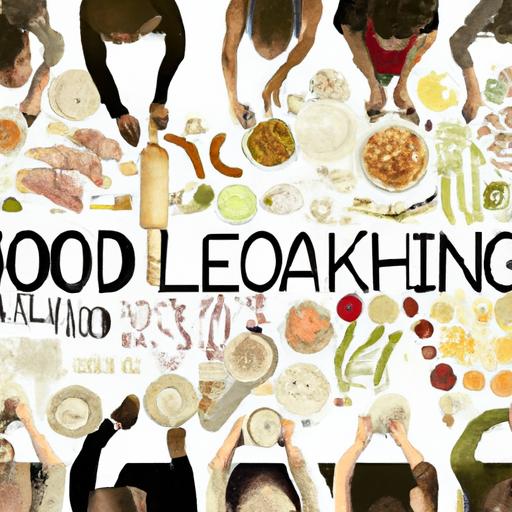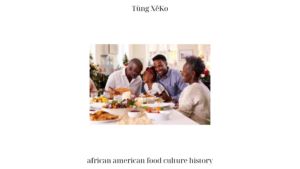Introduction
Welcome to the fascinating world of food culture and society! In this course syllabus, we will embark on a journey to understand the intricate relationship between what we eat and who we are as individuals and communities. By delving into the depths of culinary diversity and unraveling the social significance of food, we aim to gain a deeper appreciation for the role of food in shaping our identities and societies.
Introduction to Food Culture and Society Syllabus
In this section, we will lay the foundation for our exploration by discussing the importance of studying food culture and society. We will provide an overview of the course objectives and goals, as well as explain how the syllabus is structured to encompass a comprehensive understanding of this captivating subject.
A. Importance of studying food culture and society
Food is not merely a means of sustenance; it is a fundamental aspect of our existence that permeates every aspect of our lives. By studying food culture and society, we can unravel the intricate tapestry of human history, geography, traditions, and beliefs. It allows us to gain insights into diverse cultures, foster cultural appreciation, and promote social harmony.
B. Overview of the course objectives and goals
Our primary objective is to develop a deep understanding of the interplay between food, culture, and society. Through a multidisciplinary approach, we will explore various perspectives, ranging from anthropology to sociology, history to economics, and psychology to geography. By the end of this course, students will be equipped with a comprehensive toolkit to analyze and interpret the significance of food in different cultural contexts.
C. How the syllabus is structured
To ensure a holistic understanding, the syllabus is divided into several key sections. We will start by exploring the concept of food culture, its definition, and its significance in shaping our culinary identities. Moving forward, we will delve into the complex relationship between food and identity, analyzing how our food choices reflect our personal and cultural affiliations. Next, we will examine the socioeconomic aspects of food, investigating the impact of food on socioeconomic status, food security, and consumption patterns.
Understanding Food Culture
In this section, we will lay the groundwork by defining and exploring the concept of food culture. Through this exploration, we will gain a deeper understanding of how food shapes our cultural identities and influences our daily lives.
A. Definition and significance of food culture
Food culture encompasses the customs, traditions, beliefs, and practices related to food within a specific society or community. It reflects the values, history, geography, and social dynamics of a particular group. Understanding food culture provides us with valuable insights into the social fabric of a community and helps us appreciate the diversity of culinary practices worldwide.
B. Exploring different cultural perspectives on food
Through the lens of food culture, we will explore a myriad of perspectives from various cultures around the globe. We will examine how different societies perceive and interact with food, including their unique culinary traditions, ingredients, cooking techniques, and dining rituals. This exploration will foster a deep appreciation for the richness and diversity of global food cultures.
C. Factors influencing food culture
Food culture is shaped by a multitude of factors, including geography, history, religion, climate, and socioeconomic conditions. We will delve into the influences that mold food culture, understanding how these factors contribute to the evolution of culinary practices within different societies. By analyzing these influences, we can better comprehend the complexities of food culture and its societal implications.
Exploring Food and Identity
Food is not merely sustenance; it is deeply intertwined with our personal and cultural identities. In this section, we will delve into the intricate relationship between food and identity, exploring how our food choices reflect our individual and collective sense of self.
A. Examination of how food shapes personal and cultural identities
Food plays a pivotal role in shaping our personal and cultural identities. It carries memories, traditions, and emotions that contribute to our sense of self. By examining the foods we consume and the rituals surrounding them, we can unravel the layers of our identities and understand how they are entwined with the culinary choices we make.
B. Impact of globalization on food identity
Globalization has both positive and negative implications for food identity. On one hand, it allows for the exchange of culinary traditions, creating diverse fusion cuisines. On the other hand, it can lead to the erosion of traditional food practices, as globalized food chains dominate the culinary landscape. We will explore these dynamics and analyze how globalization shapes our food identities.
C. Food symbolism and rituals in various societies
Food is often imbued with symbolism and associated with rituals in many societies. From religious feasts to cultural celebrations, certain foods hold deep cultural and spiritual significance. We will delve into the symbolic meaning of food in different societies, understanding how these rituals contribute to the fabric of social life.
Socioeconomic Aspects of Food
Food is not only a cultural phenomenon but also deeply intertwined with socioeconomic factors. In this section, we will examine the relationship between food and socioeconomic status, exploring issues such as food security, consumption patterns, and their societal implications.
A. Analysis of the relationship between food and socioeconomic status
Food choices and access to quality food are often influenced by socioeconomic status. We will analyze how economic disparities impact food consumption patterns, nutritional disparities, and health outcomes. By understanding these dynamics, we can advocate for equitable access to food resources and address socio-economic inequalities.
B. Food security and its implications on society
Food security is a pressing global issue. We will delve into the challenges surrounding food security, including issues of food availability, accessibility, and utilization. By examining the socio-economic repercussions of food insecurity, we can work towards sustainable solutions to ensure adequate nutrition for all.
C. Food consumption patterns and their socioeconomic influences
Food consumption patterns vary across different socio-economic strata. We will explore the factors that shape these consumption patterns, such as income, education, and cultural influences. By analyzing these influences, we can gain insights into the societal implications of food choices and work towards promoting healthier and more sustainable eating habits.
Conclusion
Food culture and society are intertwined in a complex dance that shapes our identities, communities, and the world at large. By studying this fascinating subject, we gain a deeper appreciation for the diverse culinary practices across the globe and understand how food profoundly impacts our social fabric. Join us on this enlightening journey as we unravel the intricate relationship between food, culture, and society.
This article is brought to you by Tùng XêKo, where we celebrate the richness of food culture and its profound impact on society. For more captivating articles on food culture and other engaging topics, visit our Blog & News section.
Disclaimer: The views and opinions expressed in this article are solely those of the author and do not necessarily reflect the official policy or position of Tùng XêKo.


